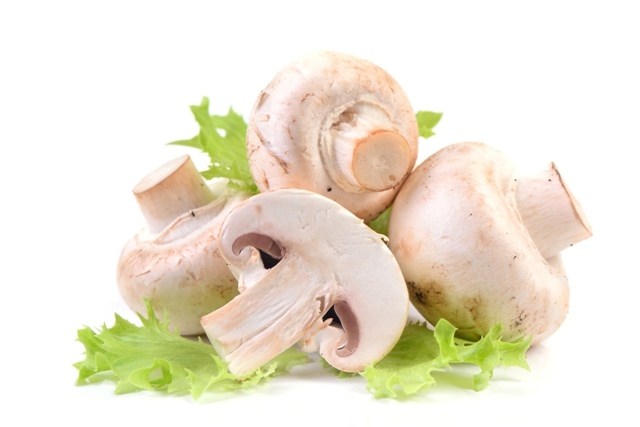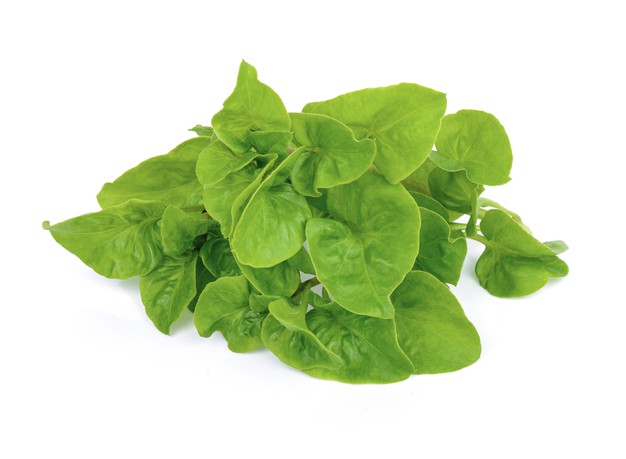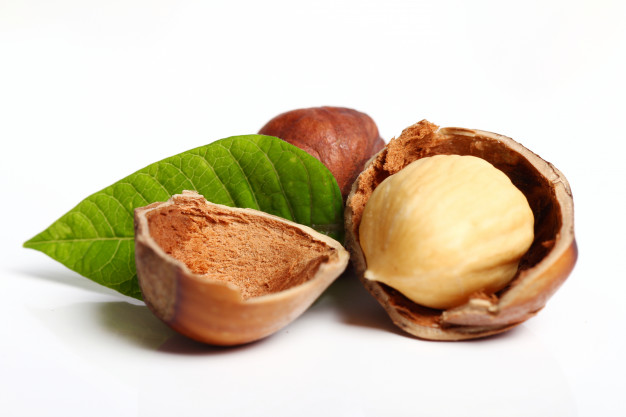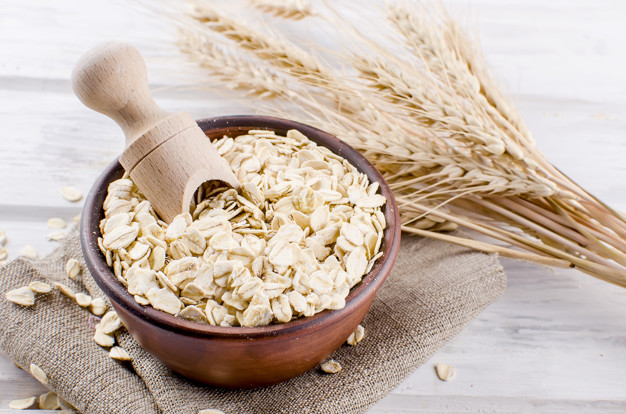Mushroom is a nutritious food and especially rich in proteins, fibres and antioxidants. It is extensively used for various therapeutic and culinary purposes.
Nutritional profile
- It contains desirable amount of carbohydrates and fibre
- It contains protein as well and mainly composed of various important amino acids
- It contains negligible amount of fat thus it is considered as low fat food and it does not provide enough calorie on its oxidation
- It is packed with numerous imperative micronutrients that make mushroom healthy worthy, which include Vitamin D, Vitamin C, Vitamin B complex, choline, calcium, phosphorus, potassium, manganese, magnesium, selenium, copper, iron and zinc
- It contains several phytonutrients as well, which are accountable for exerting various nutraceutical activities
Biological activity
Antioxidant activity
- It contains numerous important nutrients that act as antioxidant and play imperative role in protecting the body from oxidative damages
- It is also associated with neutralizing free radicals and protects the body from their detrimental effects
- It helps to decrease the concentration of reactive oxygen species as well, which is responsible for preventing oxidative stress
- It helps to protect the body from the harmful effects of lipid peroxidation too
- Its antioxidant activity is also related with protecting various important biological substances of the body (like proteins, fat, DNA, RNA etc) from oxidation thus helps in sustaining their activity


Anti-carcinogenic activity
- It plays significant role in reducing the prevalence of carcinoma as it exerts strong anti-carcinogenic effects
- It contains an imperative component named ergothioneine, which is also responsible for lowering the risk of developing cancers by reducing oxidative stress
- It helps to suppress the growth of malignant cells within body by inducing apoptosis and helps to prevent metastasis too
- It is associated with regulating cellular proliferation thus helps to reduce the susceptibility of tumors as well
- It is really very effective for improving the quality of life and survival rate of patients with cancer
- It is also very useful for mitigating the adverse effects of chemotherapy
- It is extremely useful for reducing the prevalence of breast cancer and prostate cancer
Anti-inflammatory activity
- Mushroom is extensively used as an important remedial action for inflammatory diseases because it contains various components (polysaccharide, mycosteroids, carotenoids, indolic compounds and phenolic compounds), which are responsible for preventing inflammation by exhibiting anti-inflammatory activity
- It helps to delay the onset of inflammatory events in body by reducing the concentration and activity of inflammatory mediators
- It is also related with preventing swelling thus its consumption is thought to be an imperative preventive measure for arthritis as it helps in preventing joint swelling and subsequently improves joint health

Hypolipidemic activity
- Its consumption is very useful for decreasing total body fat percentage as it exerts hypolipidemic activity
- Beta glucan component of mushroom is considered as one of the most important components, which is responsible for decreasing the level of bad cholesterol (LDL), VLDL and triglyceride in body as result helps in reducing the prevalence of cardiac disorders, strokes, hepatic disorders and renal disorders
Health benefits
Role on immunity
- Mushroom is considered as an important immune booster because it contains numerous vital nutrients that play significant role in boosting up the overall immunity of the body
- Protein present in mushroom helps to promote the synthesis of antibody and interferon, which help to attack foreign substances and stave off infections
- Its magnesium component is responsible for keeping the immune system strong. It helps to improve immune responses as well by stimulating the synthesis of immunoglobulins
- Selenium found in mushroom is also associated with strengthening the defense mechanism of the body as it acts as a powerful antioxidant that helps to protect every cell from oxidative damages. Ergothioneine is another important component found in mushroom, exerts antioxidant activity and plays significant role in reducing oxidative stress by neutralizing free radicals
- Vitamin C of mushroom helps in stimulating the synthesis of WBC, which is also responsible for enhancing immunological responses and makes the body able to fight against infections

Role on skeletal health
- Consumption of mushroom is really very helpful for obtaining a healthy skeletal system
- It contains adequate amount of calcium and phosphorus, which help in bone mineralization and make the bone healthy and strong. They are also associated with enhancing bone mass and bone mineral density as a result help in preventing bone thinning, which ultimately helps to decrease the prevalence of bone fractures
- It has seen that individual who consume UVB-labeled mushrooms obtain better skeletal health because these mushrooms contain relatively higher amount of Vitamin D (as they have been exposed to sunlight during their growth period), which helps to enhance calcium absorption thus facilitates healthy bone formation
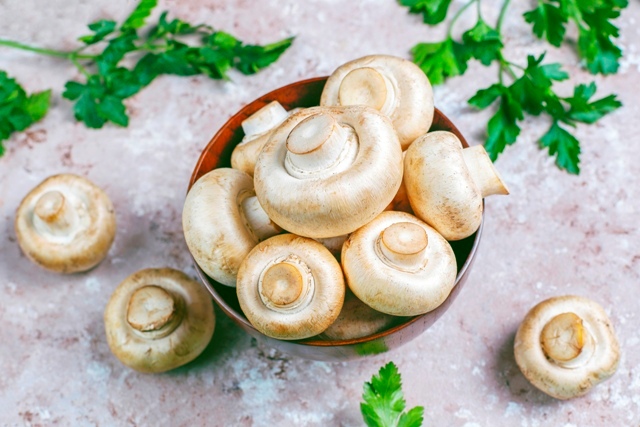
Role on nervous system
- It contains various nutrients that give the brain a boost
- Its protein component helps in the growth and development of brain
- B vitamins present in mushroom are also accountable for improving brain activity
- Glutathione and ergothioneine are the two vital antioxidants present in mushroom play significant role in protecting every nerve cell from oxidative damages and also help to protect your brain as you age
- It helps to delay the onset of neuro-inflammatory events as well, thus helps to reduce the risk of developing neurological disorders
- Its consumption is very effective for improving the symptoms of Parkinson’s diseases and Alzheimer’s disease
- It is also related with preventing cognitive decline and helps to improve memory as well

Role on mental health
- It is very useful for reducing the symptoms of depression
- It helps to improve mood as well
Therapeutic uses
It has been extensively used for various therapeutic purposes, which include –
- It is widely used as an important cardio protective food as it contains various nutrients that help in promoting cardiac health and functionality
- It has seen that consumption of mushroom significantly reduces the prevalence of heart attack and strokes
- It helps to prevent hypertension as well
- It helps to prevent arrhythmias too
- Its consumption is also very helpful for decreasing postprandial blood sugar load as fibre present in mushroom helps in slowing down the rate of glucose absorption thus it can be easily incorporated in the diet of a diabetic patient
- It helps in weight management and facilitates weight reduction
- Its consumption is also associated with enhancing skin elasticity
- It helps to prevent premature aging as well and helps to make the skin healthy and supple
- It helps to promote muscular growth
-
 It is also very effective for promoting the health and activity of connective tissues
It is also very effective for promoting the health and activity of connective tissues - It plays significant role in reducing the prevalence of anemia
Culinary uses
- It can be added to stir fries
- It can be sautéed with onion for preparing quick and tasty side dishes
- It can also be utilized as stuffing agent
- It can be added with omelets, pizzas, quiches and breakfast scrambles too
- It can be used for preparing sandwiches as well
General consideration of using mushroom
- It is better to purchase fresh mushrooms, which are unbruised, dry and firm
- It is always better to store it in refrigerator for preventing its spoilage
Risk factors
It is a healthy food but it should be consumed as per recommendation because it’s over consumption may develop digestive disorders. It may also cause muscle weakness and drowsiness in excess amount.

Source:
Cheung, P.C., 2013. Mini-review on edible mushrooms as source of dietary fiber: preparation and health benefits. Food Science and Human Wellness, 2(3-4), pp.162-166.
Cheung, P.C.K., 2010. The nutritional and health benefits of mushrooms. Nutrition Bulletin, 35(4), pp.292-299.
Kakon, A.J., Choudhury, M.B.K. and Saha, S., 2012. Mushroom is an ideal food supplement. Journal of Dhaka National Medical College & Hospital, 18(1), pp.58-62.
PUIA, I.C., Aida, P.U.I.A., CHEDEA, V.S., LEOPOLD, N., BOCSAN, I.C. and BUZOIANU, A.D., 2018. Characterization of Trametes versicolor: Medicinal mushroom with important health benefits. Notulae Botanicae Horti Agrobotanici Cluj-Napoca, 46(2), pp.343-349.
Singh, R., 2017. A review on different benefits of mushroom. IOSR Journal of Pharmacy and Biological Sciences, 12(1), pp.107-11.
